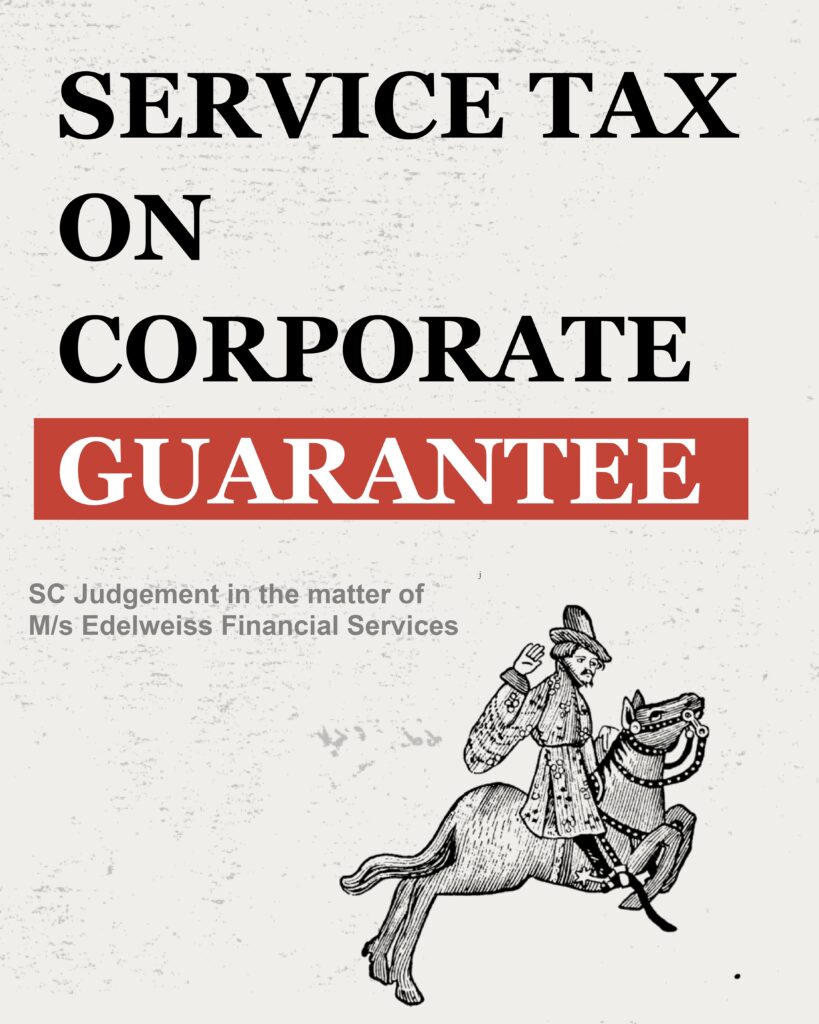SC Judgement in the matter of M/s Edelweiss Financial Services
FACTS OF THE CASE
- M/s Edelweiss Financial Services Limited issued a corporate guarantee without any consideration.
- The Revenue claimed that the assessee did not fulfill their service tax liability as a provider of banking and financial services.
The adjudicating authority concluded that
commission received from overseas companies for export services was not taxable, being export of services.
The definition of ‘corporate guarantee’ did not fall under ‘other financial services’ as per the Finance Act until 20 June 2012, hence not a service.
Post 20 June 2012, the absence of consideration for a corporate guarantee excluded it from the definition of ‘service’ in the Finance Act.
- The CESTAT ruled that taxability requires a provider and consideration, which were both lacking in this case.
- The CESTAT dismissed the Revenue’s appeal due to the absence of consideration for the corporate guarantee.
- The Revenue has filed a civil appeal before the Supreme Court challenging the CESTAT’s
SUPREME COURT FINDINGS
- The assessee did not receive any consideration for providing a corporate guarantee to its group companies.
- The Revenue did not challenge this finding or provide evidence that issuing a corporate guarantee without consideration is a taxable service.
- The Supreme Court held that without consideration, no service tax liability arises.
- Due to the conclusive finding by the CESTAT and the Commissioner, the Supreme Court found no reason to admit the appeal.
WAY FORWARD IN GST
- This ruling will establish a precedent and resolve lengthy litigations under the previous service tax regime.
- The Supreme Court’s decision emphasizes that consideration is necessary to impose tax on a corporate guarantee.
- Under the GST regime, related party transactions, even without consideration, are considered deemed supplies and are subject to GST.
- This ruling may create challenges for businesses under the GST regime.
- The decision is expected to lead to increased scrutiny by the Revenue in cases of corporate guarantees involving related parties, inter-company transactions, or directors.
